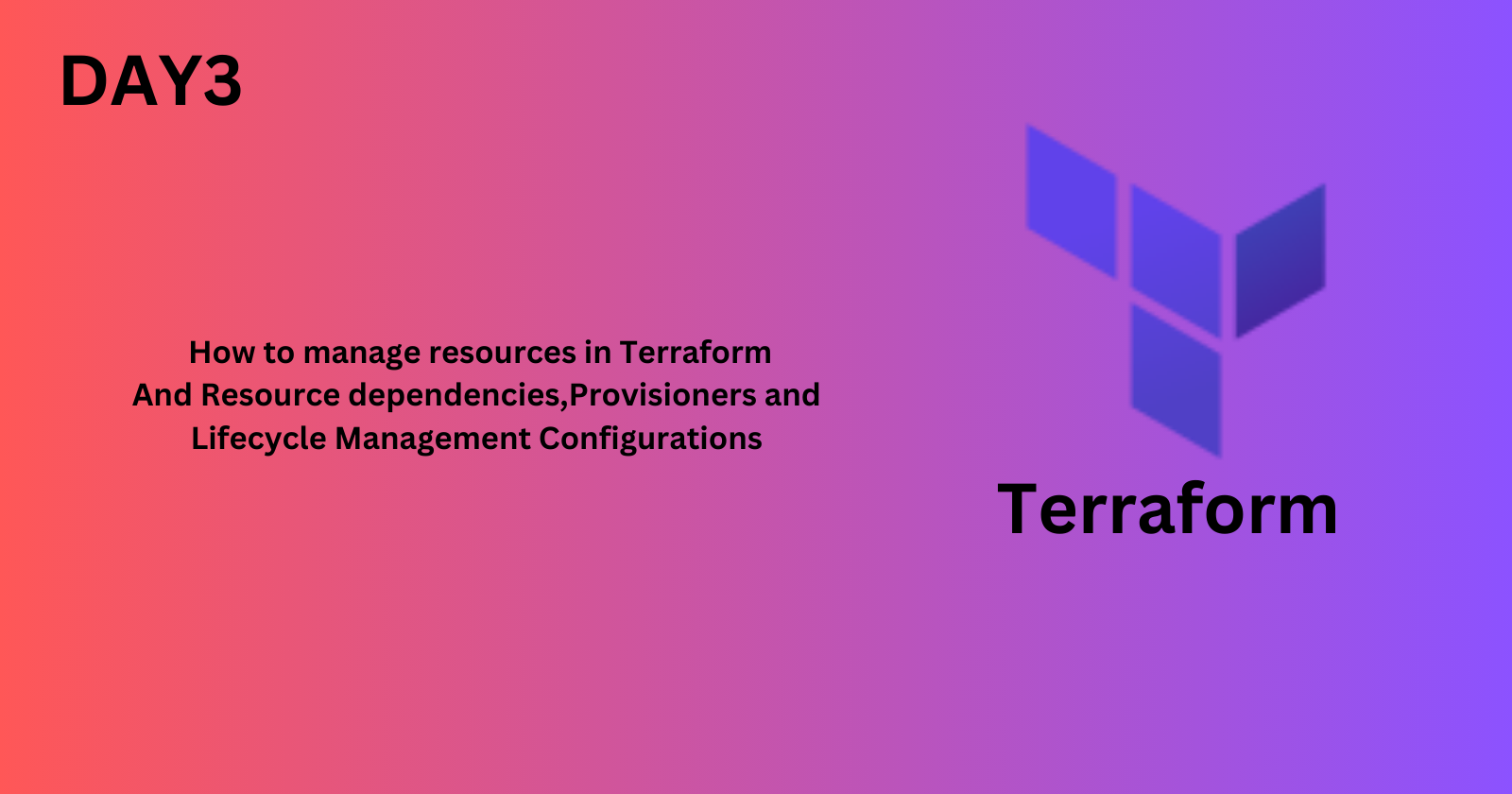🧱Configuring Infrastructure with Terraform
 Vivek Ashok Moudekar
Vivek Ashok Moudekar
📁Terraform Configuration File:
Create a Terraform configuration file to define a resource of AWS EC2 instance.
terraform {
required_providers {
aws = {
source = "hashicorp/aws"
version = "5.43.0"
}
}
}
provider "aws" {
region = "us-east-2"
}
resource "aws_instance" "my_instance"{
ami = "ami-5f4884535656"
instance_type = "t2.micro"
}
📁Check state files
Check state files before running plan and apply commands & Use validate command to validate your tf file for errors and provide the Output generated by each commands.
terraform init
terraform validate
📁Adding Provisioner to Configuration file
You can add a provisioner to your configuration file to configure the resource after it is created. For example, to run a shell script on the EC2 instance after creation, you can use the remote-exec provisioner:
resource "aws_instance" "new-instance" {
ami = "ami-0c55b159cbfafe1f0"
instance_type = "t2.micro"
provisioner "remote-exec" {
inline = [
"echo 'Hello, World' > hello.txt",
]
}
In this example:
We're provisioning an AWS EC2 instance with the
aws_instanceresource block.Inside the
aws_instanceresource block, we're using theprovisionerblock to specify aremote-execprovisioner. This provisioner executes commands on the created instance remotely via SSH.The
inlineblock contains the commands we want to execute on the remote instance after it's created. In this case, it's just creating ahello.txtfile with the text "Hello, World".
📜To apply changes
terraform init
terraform apply
📜To destroy resources
terraform destroy
⚙Add lifecycle management configurations
To control the creation, modification, and deletion of the resource and use Terraform commands to apply the changes.These configurations allow you to specify behaviors such as preventing resource deletion or updating in-place.
resource "aws_instance" "new-instance" {
ami = "ami-0c55b159cbfafe1f0"
instance_type = "t2.micro"
lifecycle {
create_before_destroy = true
prevent_destroy = true
}
}
In this example:
We've added a
lifecycleblock inside theaws_instanceresource block.create_before_destroyis set to true, which means Terraform will create a new instance before destroying the old one during updates.prevent_destroyis set to true, which means Terraform will prevent the instance from being destroyed.
Happy Learning :)
Subscribe to my newsletter
Read articles from Vivek Ashok Moudekar directly inside your inbox. Subscribe to the newsletter, and don't miss out.
Written by

Vivek Ashok Moudekar
Vivek Ashok Moudekar
👋 Hello there! I'm Vivek, a DevOps enthusiast with a keen interest in streamlining software delivery. I hold a Master's degree in Computer Applications and have a solid foundation in key technologies such as Linux, Git, Docker, Kubernetes, and AWS. 💻 My passion lies in automation, ensuring efficient and seamless processes throughout the software development lifecycle. I thrive on creating robust CI/CD pipelines that empower teams to deliver high-quality software with confidence. 🚀 Beyond the code, I enjoy the ever-evolving world of DevOps and the challenges it brings. Join me on this journey as I explore new ways to enhance software delivery and foster a culture of continuous improvement. Let's connect, collaborate, and make the world of DevOps even more exciting together